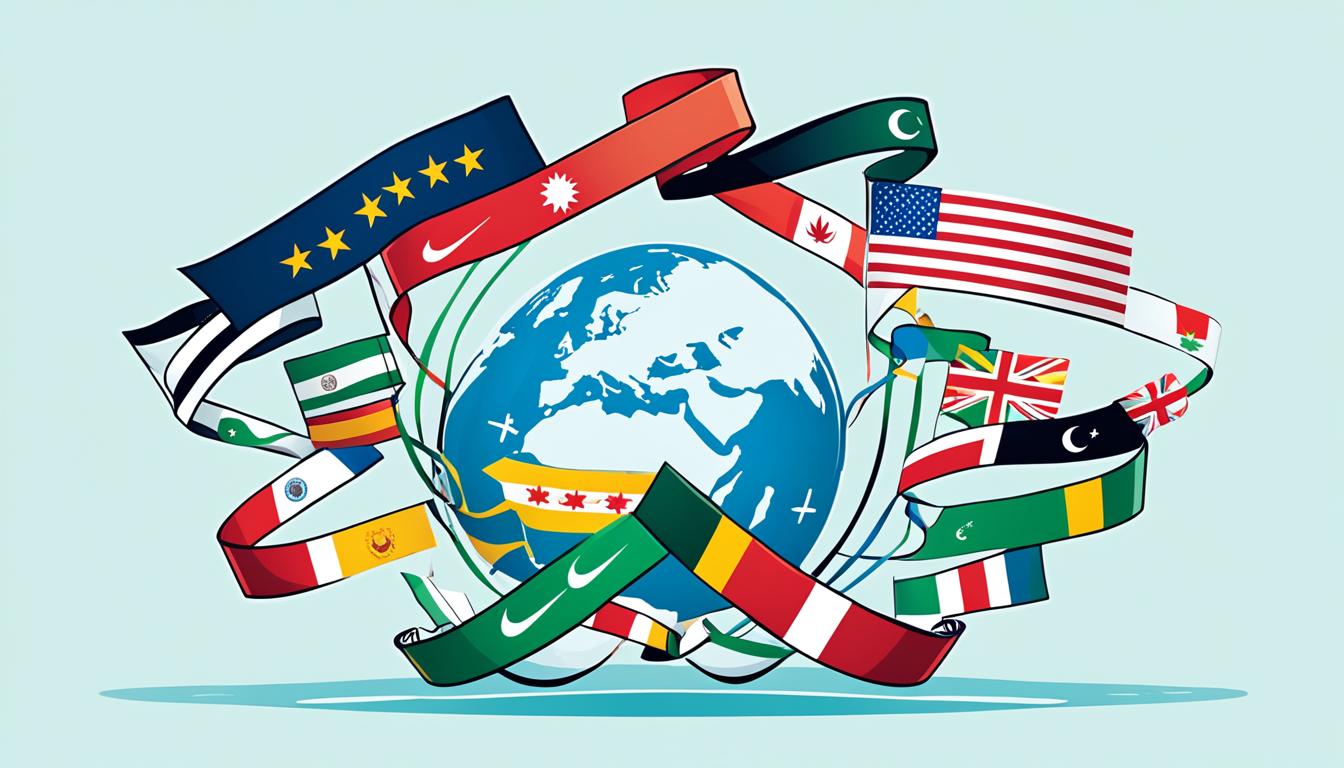Global Regulations in Islamic Finance: Overview of regulations in different countries
As the Islamic finance industry expands its footprint, generating a staggering $3.9 trillion across more than 80 countries, one pressing question emerges: Are we witnessing the rise of a new financial paradigm, or simply a trend masquerading as innovation? With global regulations in Islamic finance tailored to uphold Shariah compliance, understanding these frameworks becomes vital for stakeholders navigating this complex landscape.
Total global sharia-compliant assets are projected to reach $5.95 trillion by 2026, with a mere 10 countries controlling nearly 95% of these assets. Notably, Saudi Arabia and Iran dominate the market share, raising questions about the implications of such concentrated power within Islamic finance. As regulations evolve, fostering financial inclusion and stability remains crucial for growth.
Introduction to Islamic Finance
Islamic finance represents a unique approach to financial activities, adhering to the principles established by Islamic law, also known as Shariah. Uniquely, it prohibits practices deemed harmful, such as riba (interest), gharar (excessive uncertainty), and maysir (gambling). Understanding the definitions of Islamic finance not only sheds light on its ethical framework but highlights its significance in promoting social justice and a fair allocation of resources.
Definition and Importance
Islamic finance is fundamentally about providing financial solutions that align with Islamic values. It fundamentally prohibits collecting or paying interest, and trading in financial risks is discouraged. Key concepts include:
- Murabahah: This method involves selling goods at a mutually agreed price plus an acceptable profit margin.
- Mudharabah: A profit and loss sharing arrangement between capital providers and entrepreneurs, where profits are distributed according to a predefined ratio.
The importance of Islamic finance lies in its ability to offer ethical alternatives to conventional financing systems, thus addressing the growing demand for socially responsible investing. The industry has managed upwards of $500 billion in assets worldwide, reflecting its systemic role in global finance.
History and Growth of the Industry
The history of Islamic finance can be traced back to the 1960s, witnessing a resurgence that has led to substantial growth. Emerging from its traditional roots, the industry has expanded significantly, operating in over 60 countries and exhibiting a remarkable annual growth rate of 15% to 20%. Currently, there are between 200 and 300 institutions dedicated to offering Islamic financial services.
By 2021, Islamic financial assets soared from $2.17 trillion in 2015 to roughly $4 trillion, with projections estimating this figure could reach around $5.9 trillion by 2026. This growth trajectory showcases the importance of Islamic finance in the contemporary economic landscape and highlights its integrity and relevance in achieving equitable economic goals.
Global Regulations in Islamic Finance
The landscape of Global Regulations in Islamic Finance is shaped by various regional and national frameworks that cater to the unique requirements of Islamic finance. As this industry experiences rapid expansion, frameworks are adapted to ensure compliance with Sharia principles while accommodating market needs.
Overview of Regulatory Frameworks
Different countries have instituted their own Regulatory Frameworks to manage the robust growth of Islamic finance. With over ten years of swift development, these frameworks are influenced significantly by local legal systems and the dynamics of the financial market. International bodies, such as the Islamic Financial Services Board (IFSB), contribute to this evolution by establishing Core Principles that promote stability within the Islamic financial sector.
In regions like the UAE and Bahrain, organizations such as the Accounting and Auditing Organisation for Islamic Financial Institutions (AAOIFI) set crucial standards. While AAOIFI mandates compliance in certain areas, adherence remains voluntary in many countries. The role of national governments in enforcing Sharia compliance through central banks is vital, although not every region imposes universal sanctions for violations.
Key Factors Influencing Regulations
Several Influencing Factors contribute to the regulatory environment surrounding Islamic finance. The burgeoning economic growth demands a more inclusive financial system, prompting regulations that reflect these needs. The increasing interest from conventional banks aiming to enter the Islamic market highlights the necessity for clear guidelines. Issues, such as the challenge of finding qualified individuals for Sharia Supervisory Boards (SSBs), indicate a growing need for professional standards within Islamic finance.
- Economic advancements and financial stability.
- The rise of Sharia compliance service providers to cater to banks.
- The critical importance of maintaining a good reputation in the industry.
The International Monetary Fund (IMF) recognizes Islamic finance’s potential in fulfilling sustainable development goals, thus fostering a supportive regulatory atmosphere. As Islamic finance navigates the interplay between its principles and national regulations, the industry stands poised for continued growth and adaptation.
Islamic Finance Regulations in the Middle East
The Middle East serves as a frontline region for the evolution of Islamic Finance Regulations. Both Saudi Arabia and the UAE play vital roles in defining the landscape through their distinctive regulatory frameworks. Their commitment to ensuring Sharia-compliant financial practices has spurred significant growth in the Islamic finance sector, positioning these nations as leaders in the industry.
Saudi Arabia: Framework and Developments
Saudi Arabia, known for its robust approach to Islamic banking, operates under a comprehensive framework governed by the Saudi Arabian Monetary Authority (SAMA). This framework emphasizes key tenets of Islamic finance including the prohibition of interest and risk-sharing principles. Recent developments have seen the establishment of the Islamic Finance Working Group, which aims to standardize and promote Saudi Arabia Regulations across various financial sectors. The country’s innovative Islamic banking solutions foster a conducive environment for investment, adhering closely to principles that avoid speculative practices.
United Arab Emirates: Islamic Finance Regulatory Landscape
The UAE has distinguished itself as a global hub for UAE Islamic Banking with numerous regulatory bodies, including the Dubai Financial Services Authority (DFSA) and the Central Bank of the UAE. This collaborative regulatory environment ensures that Islamic finance products meet international standards while remaining compliant with Sharia law. The UAE’s legal framework supports a wide range of Sharia-compliant investments, focusing on sustainable growth and risk mitigation, which are essential components of the thriving Middle East Islamic Finance market. The country’s strategic initiatives reflect its ongoing commitment to innovation within the regulatory framework, further cementing its status as a leader in the Islamic finance arena.
Islamic Banking Laws in Southeast Asia
Islamic Banking Laws play a vital role in establishing a robust framework for the growing Southeast Asia Islamic Finance sector. As countries like Malaysia and Indonesia lead the way in the development of Islamic financial products and services, the regulatory environments continue to evolve. These nations have committed to creating comprehensive methods that facilitate compliance with Shariah principles while enhancing economic growth.
Malaysia: Comprehensive Regulatory Framework
Malaysia stands out for its comprehensive regulatory framework governing Islamic finance, with efforts managed by the Central Bank of Malaysia. This regulation not only fosters a stable environment but also encourages the growth of Islamic capital markets. The Shariah Governance Framework introduced in Malaysia ensures adherence to Islamic Banking Laws, building trust and reliability in financial transactions.
Indonesia: Emerging Islamic Finance Regulations
In Indonesia, the Islamic finance landscape is rapidly expanding. The Financial Services Authority (OJK) actively oversees compliance with Shariah principles, aiming to promote financial inclusion and support the country’s growing Muslim population. Indonesia’s Islamic Finance regulations are tailored to foster the development of products that resonate with ethical values, appealing to an increasing number of consumers seeking responsible investment options.
Shariah Compliance as a Regulatory Requirement
In the realm of Islamic finance, understanding the foundation of Shariah principles is essential for maintaining the integrity of financial operations. Adhering to these principles ensures that all transactions are ethical and equitable, aligning with the religious tenets that govern them. Shariah compliance serves as a vital aspect of this adherence, affecting everything from product development to consumer trust in financial institutions.
Understanding Shariah Principles
Shariah principles encompass core concepts such as equity, participation, and ownership. These principles dictate that financial products must avoid practices deemed unethical or exploitative, such as riba (interest) and gharar (excessive uncertainty). As a result, robust frameworks for Shariah compliance have emerged to guide institutions in the Islamic finance sector, facilitating transparency and alignment with fundamental ethical standards.
Importance of Shariah Advisory Boards
Shariah advisory boards are indispensable in the Islamic finance landscape. These boards are tasked with reviewing financial products and services to ensure they meet established Shariah standards. Their expertise provides necessary oversight, fostering trust among consumers and stakeholders. In doing so, Shariah advisory boards uphold the credibility of financial institutions and reinforce their commitment to Shariah compliance.
Halal Financing Guidelines and Their Global Adoption
Halal financing is a critical aspect of the broader Islamic finance landscape. As demand for Shariah-compliant financial solutions grows, robust Halal Financing Guidelines have been established to ensure adherence to Islamic principles. Several organizations work diligently to promote global standards for halal financing, thus catering to diverse market needs while maintaining compliance.
Global Standards for Halal Financing
The international Islamic finance community has embraced the necessity for uniformity in halal financing practices. Organizations like the Islamic Financial Services Board (IFSB) and the Accounting and Auditing Organization for Islamic Financial Institutions (AAOIFI) have developed extensive guidelines. These global standards focus on ensuring that financial products align with Shariah law, thereby enhancing the credibility of the industry worldwide.
Case Studies of Halal Financing Implementation
Successful examples of halal financing can be observed in various regions, particularly in the Middle East and Southeast Asia. In the UAE and Malaysia, significant investments in Halal Financing Case Studies have demonstrated how Shariah-compliant solutions can meet the needs of investors and borrowers alike. These case studies illustrate the effective adaptation of halal financing across different sectors, driving growth and market access for Shariah-compliant investments.
Regulatory Framework for Islamic Finance in Africa
The growth of Islamic finance in Africa has gained momentum, particularly in countries like Morocco and Mauritius. Both nations are working to establish robust regulatory frameworks catering to the unique needs of Islamic banking. The development of these frameworks is key to integrating Islamic finance into the broader financial landscape while ensuring compliance with Shariah principles.
Overview of Islamic Banking in Morocco
Morocco has emerged as a notable player in the Islamic finance sector, supported by comprehensive Morocco Regulations that harmonize with Shariah law. The country’s commitment to developing a favorable environment for Islamic banking has increased the market share of Islamic financial institutions. This response highlights the growing acceptance and demand for Shariah-compliant products among the Moroccan populace.
Mauritius: Developing Islamic Finance Regulations
Mauritius is carving its path in the Regulatory Framework for Islamic Finance landscape as it actively fosters regulations to promote Islamic banking. The Mauritian government launched initiatives aimed at establishing the country as a financial hub in Africa. With a strategic focus on enhancing Mauritius Islamic Finance, these efforts will not only benefit local financial growth but also position Mauritius favorably within the context of Asia Islamic Banking.
Islamic Financial Regulatory Bodies
The landscape of Islamic finance has evolved significantly, necessitating the establishment of specific Islamic Financial Regulatory Bodies. These organizations ensure compliance with Shariah principles while promoting the growth of the industry. Their role becomes even more crucial as Islamic finance assets have surged, with estimates reaching around US$1.8 trillion in recent years.
Role of International Organizations like IFSB
International Organizations, notably the Islamic Financial Services Board (IFSB), play a crucial role in shaping global standards for Islamic finance. The IFSB’s guidelines offer a framework for enhancing the regulatory practices across various jurisdictions. This support is vital as Islamic banking penetration exceeds 15% in multiple Middle Eastern and Asian nations. Furthermore, the IFSB aids in fostering collaboration among regulators and financial institutions to address unique challenges faced by the industry.
National Regulatory Authorities in Various Countries
Across the globe, National Regulatory Authorities have been established to oversee Islamic banking practices. These bodies craft regulations that resonate with local customs while aligning with international standards. Countries such as Malaysia and the Gulf Cooperation Council (GCC) states have developed robust frameworks that ensure compliance with Shariah law. This tailored approach enhances the regulatory environment, encouraging more than 200 Islamic financial institutions operating in over 48 countries. The continuous support from these authorities develops a solid foundation for further growth in Islamic finance, highlighting its importance in the global financial system.
Conclusion
In summary, the landscape of Islamic finance is marked by the diverse Global Regulations in Islamic Finance that govern its operation across various countries. Islamic banking has made significant strides in both Muslim-majority and some non-Muslim nations, showcasing its potential for financial inclusion. As highlighted, nations like Iran and Pakistan illustrate different approaches to implementing Islamic finance, facing unique challenges such as a lack of financial infrastructure and the need for regulatory clarity.
The transition towards a more equitable and ethical financing model hinges on overcoming barriers such as high information costs and operational inefficiencies. As the sector evolves, the emphasis on risk-sharing and investment partnerships through mechanisms like Mudarabah and Sukuk is crucial for connecting the financial sector with the real economy. These innovations not only reflect a shift in business attitudes but also foster a deeper commitment to sustainability and economic resilience.
As the Islamic Finance Overview suggests, the continued development of robust regulatory frameworks is essential to navigate the complexities of this industry. The role of international organizations and national regulatory bodies will be vital in ensuring compliance with Sharia principles while promoting both local and global financial stability. As we look towards the future of Islamic finance, the potential for growth and innovation remains promising, provided that the necessary challenges are thoughtfully addressed.
Source Links
- Islamic Finance: Just For Muslim-Majority Nations? – Global Finance Magazine
- Regulatory policies in the global Islamic banking sector in the outbreak of COVID-19 pandemic – Journal of Banking Regulation
- Introduction to Islamic Finance
- Islamic Banking and Finance Definition: History and Example
- Who Makes The Rules For Islamic Finance? – Global Finance Magazine
- Insight: the legal and regulatory framework governing Islamic finance and markets in United Arab Emirates
- Understanding Sharia transactions | DLA Piper
- Islamic Finance & ESG investing
- Islamic Finance Showcases Opportunities to Achieve SDGs
- An Overview of Islamic Banking and Finance in Asia
- The efficiency of Islamic Banks in the Southeast Asia (SEA) Region – Future Business Journal
- An Introduction to Sharīʿah Law in South East Asian (ASEAN) – Business and Religion
- Insight: the legal and regulatory framework governing Islamic finance and markets in Saudi Arabia
- Insight: the legal and regulatory framework governing Islamic finance and markets in Oman
- The Growing Global Appeal of Islamic Finance
- How do I know which Islamic finance companies are halal in America
- What is a Halal Mortgage and How Exactly Does it Work? – Devon Islamic Finance
- The IMF and Islamic Finance
- World Bank Document
- How Islamic Finance Can Facilitate Public Finance Recovery & Growth







